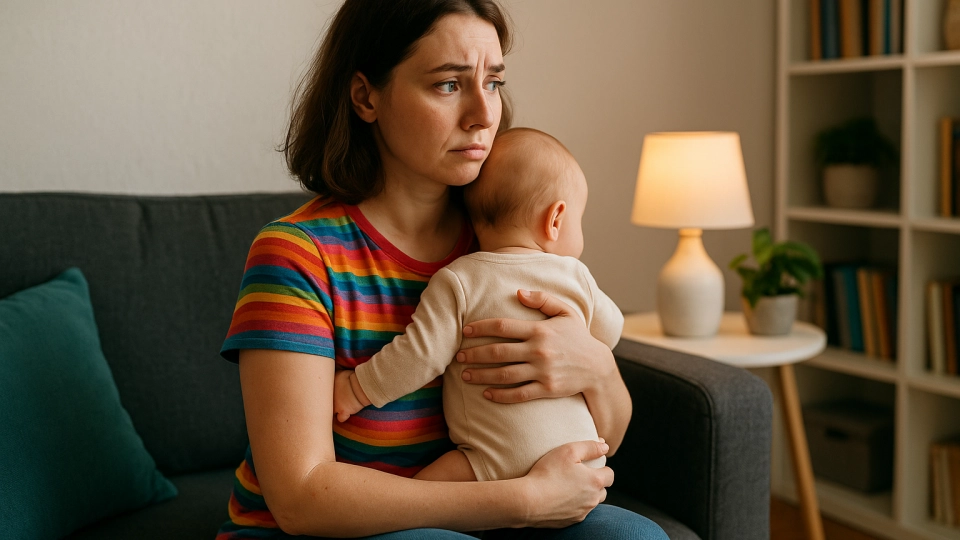Maternity leave is often seen as a happy and idyllic period, when a woman finally slows down, enjoys moments with her newborn baby, and discovers new dimensions of love and care. Yet over the following months, the vast majority of women end up feeling lonely.
It’s not your fault. According to research, up to 6 out of 10 Czech women experience some form of loneliness on maternity leave. We all need social contact, sharing, and understanding, and caring for a child—however beautiful—can really cut you off from the ordinary adult world for long weeks.
1. Why do we feel lonely on maternity leave?
a) What is loneliness and how does it manifest?
Loneliness isn’t just boredom or a simple “no one is here.” It’s a deeper emotional state in which we feel we lack social contact or quality relationships. You can feel lonely even when you’re surrounded by others—for example, a mom who spends all day with her child but has no chance to talk with an adult, hug someone, be heard, or be accepted by another adult.
Loneliness is natural, and to some degree we all experience it at different times in life. The problem arises when this state grows into a long-term feeling of isolation, lowers our energy, joy, and motivation, or even starts to affect our physical health. Psychologically, loneliness is often linked with fatigue, irritability, feelings of inferiority, or sadness. Many women describe that they’ve lost themselves or feel “invisible.”
For mothers on maternity leave, there’s also the obligation to care for another human being, which means less time and space for yourself, fewer social contacts, and sometimes less sleep or psychological well-being.
b) Typical sources of loneliness for moms
One of the main factors is a change in life rhythm. Work, interests, and contact with other people are limited—now everything revolves around the baby. Especially in the first months, care is intense and requires almost constant attention.
Another source is the so‑called loss of identity. Suddenly I’m no longer a colleague, an athlete, a creative soul… I’m mainly a mom. It takes months, sometimes years, before a woman finds herself again. Moreover, if there’s no friend or family around to help, the feeling of abandonment can deepen.
Routine also plays a big role. The everyday schedule—feeding, changing, putting to sleep—can become stereotypical and monotonous. And there’s no one to share the funny or tough moments with, because a partner is often working and friends have other concerns.
Last but not least, there’s societal pressure. “Maternity leave is the most beautiful time of life.” If your experience isn’t a fairy tale, you may feel ashamed or guilty about confiding difficult emotions.
c) Psychological and social context
Loneliness deepens emotional slumps and can be an early sign of more serious issues such as anxiety or postpartum depression. At the same time, it’s important to realize that contact with other people by itself isn’t always an automatic cure. It’s not just about quantity but, above all, about the quality of relationships.
2. You’re not alone, and loneliness isn’t weakness
The value of sharing and support groups
One of the most effective remedies for feeling lonely is sharing. You may think you’re the only one experiencing this, but the truth is other moms often face the same questions and feelings. Getting into the company of women in the same life situation can bring relief.
Playgroups and playgrounds are ideal for making new connections: your child can play with others, and you can start with small talk with other parents. Maybe you’ll see each other again next time and pick up the previous topics.
3. Time just for me
a) Why is time for yourself essential?
One of the biggest challenges of motherhood is constantly putting your own needs aside in favor of the child. Being constantly “on alert” is unhealthy in the long run. You need not only physical rest but also mental rest—intellectual stimulation, your own hobbies, and time devoted just to yourself.
Psychologists say that for a sense of fulfillment, prevention of burnout, and maintaining psychological balance, you need to do something just for yourself regularly. Even

